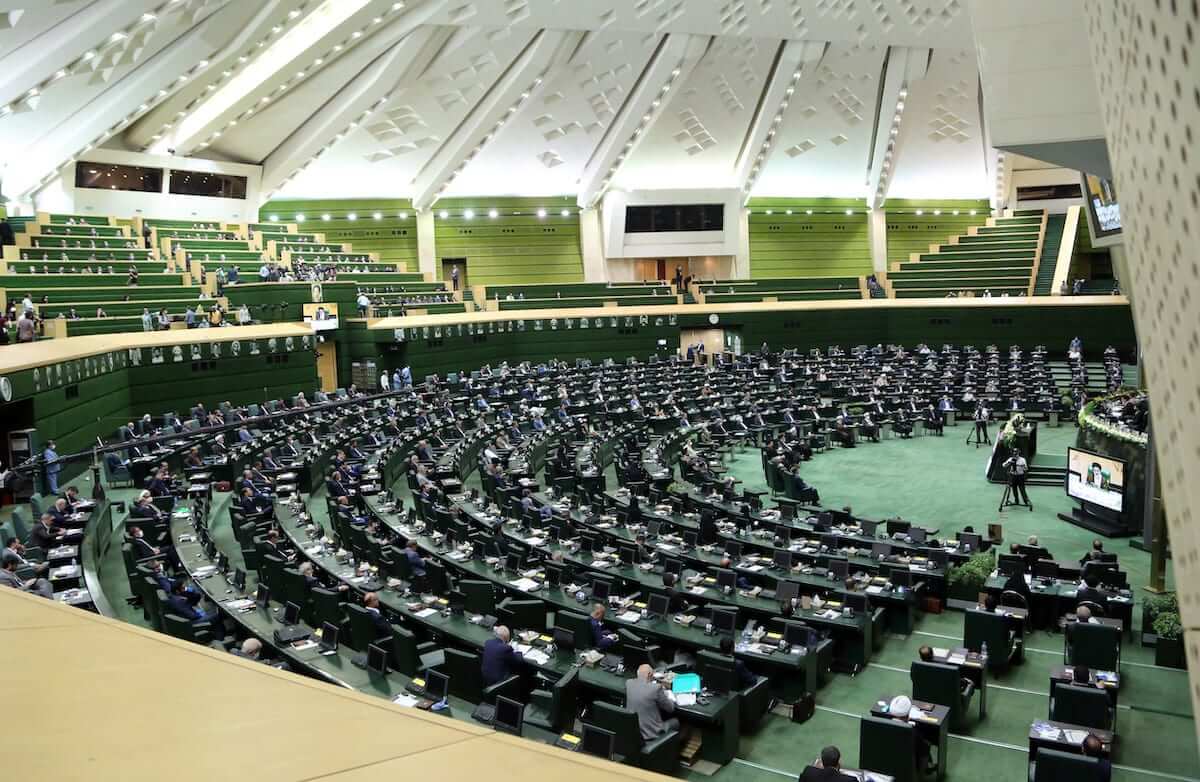Iranian lawmakers have demanded that the United States (US) guarantee that it will not abandon a potential nuclear deal.
On Sunday, 250 out of 290 members of the Iranian parliament, the Majlis, signed a statement issued to President Ebrahim Raisi urging him not to sign a new nuclear deal if Tehran’s demands are not met by the West. Lawmakers laid out six conditions in the statement and said that Iran “should learn from past experiences and not commit [to] any agreement […] without obtaining the necessary guarantees” from the West.
The statement said that the “terrorist government” of the US must ensure that it will not leave the nuclear deal once it has been restored and not use the “trigger mechanism,” which calls for sanctions to be imposed on Iran if it violates conditions of the nuclear deal.
Furthermore, the lawmakers said that the US and the E3 countries—Germany, France and Italy— must remove all sanctions imposed on Iran “on the false pretexts” of violating the nuclear deal and committing human rights abuses.
The letter also calls on the US to fulfil all its obligations under the deal and said that it is crucial for Iran to receive money from its exports. If all these conditions are guaranteed by the US and the West, then the Majlis would approve Iranian compliance with the nuclear deal and Iran would “take steps to reduce” its nuclear programme.
The announcement comes amid reports suggesting that Iran and world powers are on the verge of reviving the 2015 nuclear deal, formally known as the Joint Comprehensive Plan of Action (JCPOA). On Friday, a European Union official told Reuters that a deal is close, depending on the political will of those involved.
“I expect an agreement in the coming week, the coming two weeks or so,” he said, adding, “I think we have now on the table text that are very, very close to what is going to be the final agreement.”
White House Press Secretary Jen Psaki said on Saturday that “substantial progress” has been made in negotiations with Iran. “If Iran shows seriousness, we can and should reach an understanding on mutual return to full implementation of the JCPOA within days,” she added.
Prime Minister Naftali Bennett: "The talks between Iran and the major powers on a return to a nuclear agreement are advancing quickly. We may see an agreement shortly. The new apparent agreement is shorter and weaker than the previous one."https://t.co/fCNtYydxmF pic.twitter.com/sVzXe6kERF
— Prime Minister of Israel (@IsraeliPM) February 20, 2022
However, Israel has continued to express concerns over the signing of a deal that restores the JCPOA. PM Naftali Bennett said on Sunday that while world powers and Iran might reach an agreement “shortly,” such a deal will be “shorter and weaker than the previous one.”
“If the world signs the agreement again — without extending the expiration date — then we are talking about an agreement that buys a total of two and a half years, after which Iran can and may develop and install advanced centrifuges, without restrictions,” Bennett warned.
Israel remains opposed to any nuclear deal with Iran, as it views Tehran’s nuclear programme as an “existential threat,” especially since Iranian leaders have called for the annihilation of Israel. Bennett has accused Iran of advancing its nuclear programme amid the ongoing negotiations in Vienna to restore the deal, which has rendered the JCPOA ineffective.
In December, the International Atomic Energy Agency (IAEA) accused Iran of enriching uranium with highly advanced centrifuges at its Fordow nuclear power plant. The nuclear watchdog said that Tehran has started the process of enriching uranium to 20% purity using a cluster of 166 advanced IR-6 machines at Fordow.
The IAEA also reported in August that Iran has been enriching uranium to 60% fissile purity, closer to the weapons-grade level of 90%. However, the 2015 deal stated that Iran could only enrich uranium up to 3.67% for the next 15 years.
Iran and the P5+1—the United States, the United Kingdom, France, Russia, China, and Germany—signed the JCPOA in 2015. The deal, which extended sanctions relief to Iran to significantly reduce its nuclear programme, seeks to prolong its “breakout capacity,” which is the time required to produce highly enriched uranium for one nuclear weapon.
However, the previous US administration, led by President Donald Trump, decided to withdraw from the JCPOA in 2018 and re-imposed punitive measures on Iran. After coming to power in 2021, President Joe Biden expressed a willingness to re-join the JCPOA and remove the crippling sanctions on Iran. Consequently, world powers and Iran have held intense negotiations in Vienna, Austria to restore the deal since last April.

